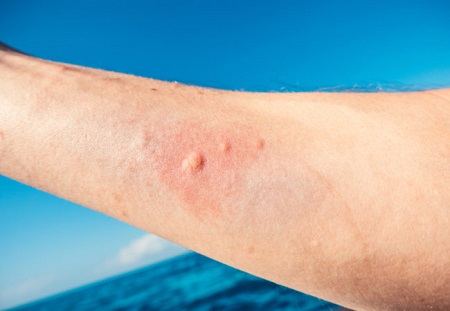Jellyfish are mainly free-swimming marine animals with umbrella-shaped bells and trailing tentacles.
They are found all over the world, from surface waters to the deep sea. Pelagia noctiluca is usually considered to be the most important species in the Mediterranean Sea.

Many thousands of swimmers are stung every year, with effects ranging from mild discomfort to serious injury.
Common signs and symptoms of stings include:
- Burning, prickling, stinging pain
- Red, brown or purplish tracks on the skin — a “print” of the tentacles’ contact with your skin
- Itching
- Swelling
Severe jellyfish stings can affect multiple body systems. These reactions may appear rapidly or several hours after the stings. Signs and symptoms of severe jellyfish stings include:
- Stomach pain, nausea and vomiting
- Headache
- Muscle pain or spasms
- Weakness, drowsiness, fainting and confusion
- Difficulty breathing
- Heart problems

Teatment:
- Peel off any remaining tentacles with a gloved hand, stick, shell or tweezers. Be careful not to get the tentacles on yourself or on your clothing.
- Rinse away the tentacles using sea water rather than fresh. Fresh water may worsen the stinging pain. You can also plain white distilled vinegar.
- Use topical antistamines or ammonia jel
Source: medpharmacy.gr